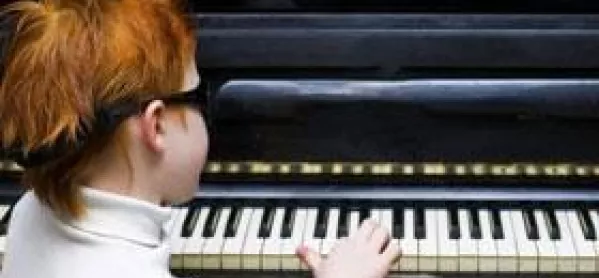- Home
- ‘Crisis’ as most schools end compulsory music from Year 9
‘Crisis’ as most schools end compulsory music from Year 9

New research shows that the proportion of schools that insist on pupils learning music in Year 9 in line with the national curriculum has almost halved in just six years.
The survey from the University of Sussex has led to warnings that music in schools is at crisis point and at risk of disappearing completely.
Just 47.5 per cent of schools make music compulsory in Year 9, according to the new research, compared to 84 per cent six years ago. And while 48.4 per cent of schools had optional music in Year 9, the remaining 4.1 per cent offered no music provision for 13- to 14-year-olds.
Ally Daubney, of Sussex University, said her research “highlights that the situation is now at crisis point in many secondary schools”.
“We need to act now in order to reverse this decline and find ways to support schools to offer a sustained music education for all,” she said.
The research comes after warnings from Ofsted that it could mark down ”exam factory” schools that narrow the curriculum in its new framework.
Co-author Duncan Mackrill, also from Sussex University, said: “Music’s place in the secondary curriculum continues to be precariously balanced or disappearing in a significant number of schools.”
The survey of almost 500 schools also discovered that some schools do not offer music as a curriculum subject in Year 7 and that more than a third (35.8 per cent) of schools had fewer staff in music departments than two years ago.
The research also found that 59 per cent of respondents felt the EBacc had a negative impact on provision and uptake of music in their school.
“Schools are under pressure to focus their curriculum through the narrow lens of the EBacc and as a result - as shown by this research and by the government’s own figures - provision and uptake of music is suffering and at risk of disappearing completely from our schools,” Deborah Annetts, chief executive of the Incorporated Society of Musicians, said.
“Music is central to our cultural life, a key driver of economic growth, and gives our children the tools to navigate a fast-changing digital world. We urge the government to reverse its EBacc policy altogether to keep music in our schools.”
Meanwhile the Local Government Association has warned that school music lessons could be under threat unless the Government covers the cost of the teacher pay rise to include music teachers.
In July a “fully-funded” pay rise for all classroom teachers was announced by the government.
But the Local Government Association (LGA) says it has since emerged that this will not apply to centrally employed teachers (CETs), the majority of whom provide music tuition. These are teachers employed directly by councils.
The LGA is now seeking assurances from the Government that it will meet the cost of the salary rise for CETs. It says this burden cannot fall on local authorities.
Councillor Anntoinette Bramble, chairwoman of the LGA’s Children and young people board, said: “The UK has a proud history of musical excellence and many of the most well-known artists in the world over time would have benefited from music lessons.
“For many young people, it is a vital part of their education and future life opportunities, but this could be at risk unless the Government commits to fully funding the pay increase for all classroom teachers, including music teachers.
“While we were pleased that the Government announced that it would fully fund a pay increase for teachers in the summer, it needs to extend this to fund the pay rise for centrally employed teachers, such as those providing music tuition.”
She added that if the additional cost is left to councils to pick up, they will be forced to reduce certain types of education provision, including music teaching.
There are currently 4,900 CETs in England who either provide direct teaching to children and young people or play key roles in supporting education professionals, at least half of which are in music services.
Other roles include support for children from black and minority ethnic backgrounds and traveller heritages, supporting disabled children, teaching outside schools such as within secure units, and supporting schools in early years provision.
A Department for Education spokesperson said: “We take the study of the arts extremely seriously which is why music and art remain compulsory parts of the national curriculum up to age 14.We invest heavily in arts and music subjects, with more money going into education programmes to support them than anything else aside from PE.
“In total, we have invested nearly £500 million in music and arts education programmes between 2016 and 2020, which includes £300 million for a network of music education hubs to make sure every child has the opportunity to learn a musical instrument.”
Keep reading for just £1 per month
You've reached your limit of free articles this month. Subscribe for £1 per month for three months and get:
- Unlimited access to all Tes magazine content
- Exclusive subscriber-only stories
- Award-winning email newsletters



